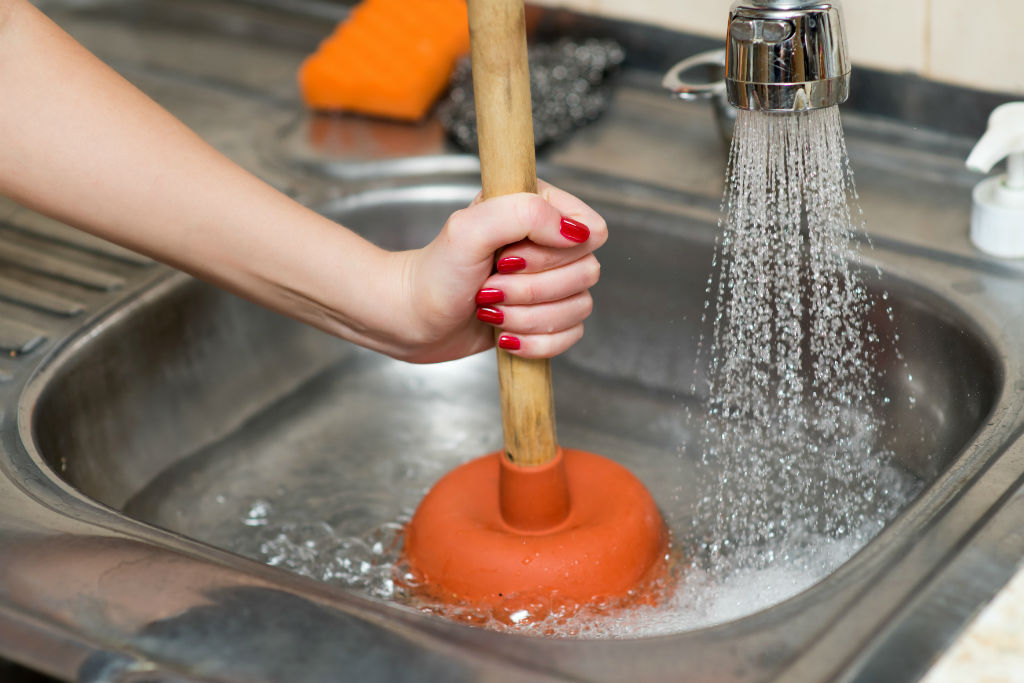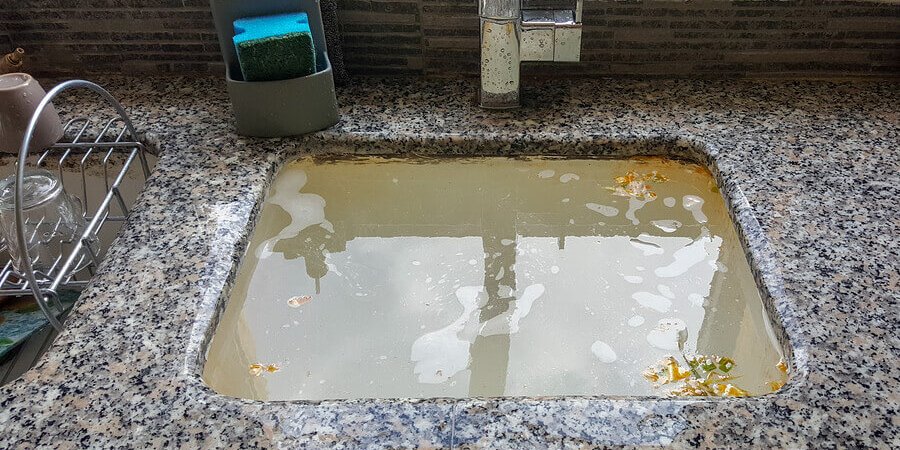Simple Methods To Address A Slow-Draining Sink
Simple Methods To Address A Slow-Draining Sink
Blog Article
On this page in the next paragraphs you will find lots of first-rate guidance on the subject of 4 Tips to Fix a Slow Draining Sink.

Introduction
We've all existed: You're cleaning your teeth or washing your hands, and you notice the water pooling in the sink. Instead of rapidly swirling down the drain, it lingers, turning your once-refreshing morning routine right into a mini overload scene. A slow-draining sink isn't simply annoying; it's often an indication of larger plumbing issues lurking below the surface. Fortunately is that most slow-draining sinks can be fixed with a little expertise, a couple of standard devices, and some perseverance. Prepared to tackle this task head-on? Let's roll up our sleeves and dive right in.
Comprehending the Sources Of a Slow-Draining Sink
Before you begin poking around in your pipes, it assists to know what might be triggering the slowdown. Comprehending the root cause makes it less complicated to pick the ideal solution.
Tools and Products You'll Require
The right devices make all the difference. Luckily, you won't need a totally equipped plumbing professional's van to get the job done.
Step-by-Step Overview to Taking Care Of a Slow-Draining Sink
Now, allow's get involved in the nitty-gritty. This detailed process will assist you with straightforward techniques to recover your sink's drain.
Step 1: Eliminate and Clean the Stopper
Commonly, the stopper (that small plug you lower to obstruct water) is the initial wrongdoer. Remove it carefully and clean off any hair or gunk caught around its base. Rinse it thoroughly before placing it back in position.
Step 2: Make Use Of a Plunger to Remove Debris
Got that plunger prepared? Placement it over the drain and offer it a few company pumps. The concept is to produce suction that can loosen up any kind of obstruction. If you see little bits of particles drifting up, you get on the appropriate track.
Action 3: Try a Drain Serpent or Cord Hanger
If the plunger doesn't suffice, it's time to highlight the drainpipe snake. Carefully feed it into the drainpipe and twist as you go. You might feel some resistance-- that's most likely the blockage. Maintain twisting and drawing until you eliminate the blockage. If you do not have a drain snake, a straightened out cord hanger can work in a pinch.
Tip 4: Use a Do It Yourself Drain Cleaner
A natural cleaner made from baking soda and vinegar can break down residual gunk. Put half a cup of baking soda right into the drain, followed by half a mug of vinegar. Allow it fizz for about 15 minutes, then flush with hot water. This chemical reaction typically does wonders for minor blockages.
Tip 5: Reassemble and Evaluate the Sink
Placed every little thing back with each other and run the faucet. Does the water now swirl away at a commendable rate? If yes, give on your own a pat on the back. If not, don't misery-- there are still a few even more tricks up your sleeve.
Vital Tools for Do It Yourself Services
A bettor is your go-to beginning point. A little, sink-sized bettor develops suction that can remove minor blockages. For even more relentless blockages, a drain snake (occasionally called a plumber's auger) works marvels. A pair of gloves, a flashlight, and possibly a set of protective safety glasses are also convenient.
Advised Cleansing Solutions
Mild meal soap and warm water can help break down greasy build-up. A blend of cooking soft drink and vinegar is a time-tested natural home remedy, and enzymatic cleaners provide a more green technique. Maintain chemical drainpipe cleansers as a last resort, as they can be extreme on your pipes.
Usual Offenders Behind Slow Water Drainage
So, what's clogging points up? Usually, it's a mixture of daily debris-- think hair, soap scum, tooth paste residue, and remaining food bits. In time, these tiny bits gather and cling to the pipe wall surfaces, slowly narrowing the flow and making it harder for water to go through. In some cases, mineral deposits from hard water can additionally include in the substance, creating the best storm for persistent obstructions.
When is it Time to Do Something About It?
If you observe the water draining slower than normal, it's a great concept to step in sooner instead of later on. Waiting as well long can lead to complete obstructions, undesirable smells, or even pipe damages. If the water takes more than a couple of seconds to clear out after shutting off the faucet, consider it a warning and get ready to put on your DIY hat.
Safety And Security First: Precautions and Prep work
Prior to you launch into unclogging mode, think of security. You're handling possibly filthy water and particles, so slip on a pair of gloves. If you're using chemical cleaners, make sure the room is well-ventilated and follow the directions on the tag.
Protective Equipment and Work Space Setup
Lay down some old towels or rags around the sink location to catch dashes. Eliminate any products that could get in your means, like soap dispensers or tooth brush holders. Make certain you have good lighting-- get a flashlight if required.
Alternate Methods for Stubborn Clogs
Not all obstructions are developed equivalent. If your sink still rejects to coordinate, consider these alternative services.
Baking Soda and Vinegar Technique
We already discussed this, however it's worth keeping in mind once again. This gentle, eco-friendly approach is more secure than chemical cleaners and frequently fairly efficient.
Chemical Drainpipe Cleaners
Enzyme-based cleaners utilize natural microorganisms to digest raw material. They're an outstanding choice if you're aiming to avoid severe chemicals. Simply keep in mind, they may take a bit longer to function their magic.
Chemical Drainpipe Cleaning Company: Pros and Cons
Chemical cleansers can blast with hard obstructions fast, yet they're not without downsides. They can produce heat and fumes, damage pipes if used excessively, and pose ecological dangers. Utilize them moderately, and always comply with the directions thoroughly.
Preventive Measures to Keep Your Sink Flowing
Avoidance is the very best remedy. By embracing a few easy practices, you can maintain your sink from slowing down to begin with.
Regular Cleansing Habits
Clean down the sink container and component area frequently. Eliminate hair or food fragments prior to they have an opportunity to wash down the drainpipe.
Preventing Harmful Compounds Down the Drain
Hesitate before discarding coffee grounds, oil, or fibrous vegetable scraps down the sink. These wrongdoers hold on to pipe wall surfaces, producing blockages with time.
Regular Upkeep Checks
Arrange a quick monthly examination. Run hot water with the sink for a couple of mins, focusing on the flow. If it seems slow-moving, act quickly prior to it comes to be a full-on obstruction.
When to Call a Specialist Plumbing Technician
Occasionally, despite how difficult you try, that block just will not move. That's when it's time to bring in the pros.
Signs That Suggest an Extra Major Concern
If your sink drains gradually regardless of several efforts, or if you observe water backing up in various other fixtures (like your shower or toilet), you might have an extra serious plumbing concern lurking much deeper in the system.
Stabilizing Do It Yourself Efforts with Expert Aid
While do it yourself can conserve you money and use a feeling of success, there's no embarassment in calling an expert. A specialist plumbing technician can evaluate your whole plumbing configuration, guaranteeing there's no underlying damages or long-term issue that might cost you more in the future.
Contrasting Expenses and Long-Term Solutions
Prior to making a decision, think about the big picture. An affordable, quick fix may fix the issue momentarily, but investing in a more long-term option can save you cash and stress and anxiety in the future.
Evaluating the Expenses of DIY vs. Specialist Repairs
Do it yourself fixes commonly set you back bit more than the cost of a plunger or a bottle of baking soda. Specialist solutions, on the other hand, come with a price tag but might prevent repeated issues and expensive repair services later on.
Purchasing High Quality Fixtures and Upgrades
If your sink's design adds to regular clogs, it could be worth upgrading to higher-quality fixtures or altering the plumbing layout. Consider this an investment in your house's performance and convenience.
Final thought
A slow-draining sink can seem like a small irritation, but it's often a sign that your pipes requires a little tender loving care. By recognizing the origin, using the right devices and strategies, and devoting to straightforward preventive measures, you can keep your sink streaming freely. And when all else stops working, never ever wait to contact a professional-- your home's pipes is worth the financial investment in care and upkeep.
Three Common Ways to Fix a Slow Drain
Baking Soda Method
Boil a full pot of water. Measure out cup of baking soda and pour it down the drain. Then take cup of the magical cleansing substance known as white vinegar and drop that down there too. Allow the mixture to fizz in the drain for five minutes as the vinegar and baking soda combine. Now dump in that whole pot of boiling water. This combination of cleaning substances should clear out anything that is causing your sink to drain slowly. If it doesn t...
Zip-It
If the baking soda method doesn t clear out your drain, it may be because a significant amount of hair and/or other debris has collected there and you need to remove it. Purchase a Zip-It tool at any home improvement or hardware store and insert it into your drain. It will catch any collected hair or debris that s blocking the flow of water. Pull it out. If it s got a big clump of hair, etc. on the end, you ve probably got your culprit.
Drain Cleaner
If these methods don t work, there is the standard drain cleaner that you can also buy in a hardware store or even your local grocery store. It s better if you can use a household solution, but these drain cleaners often work in a pinch. They re very simple to use. You generally just dump them in your drain and wait. If even this method is not effective, it may be time to call the plumber.
https://www.mrrooter.com/oneida/about-us/blog/2017/july/three-common-ways-to-fix-a-slow-drain/

We are very excited about and I'm hoping you appreciated the blog post. Sharing is caring. You won't know, you will be helping someone out. Thanks so much for taking the time to read it.
Get Offer Report this page